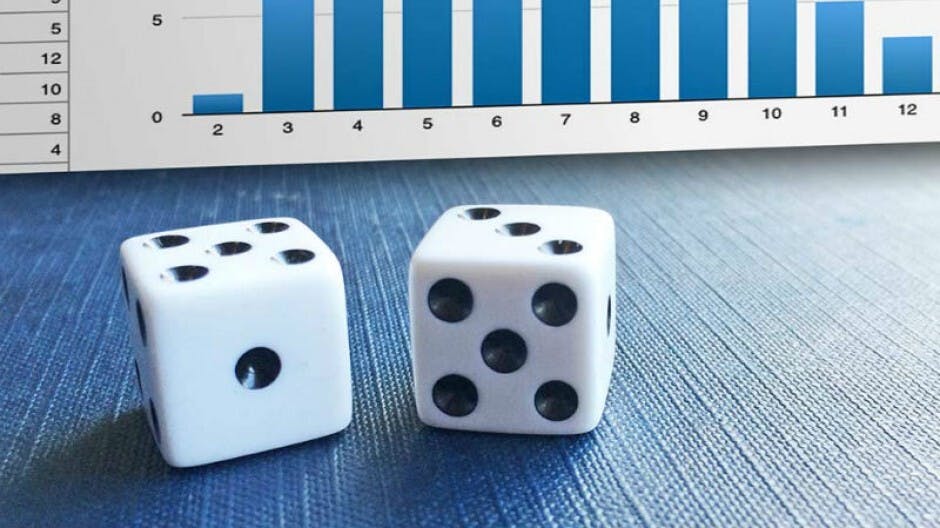PROBABLE 和 POSSIBLE 是英語中最常見的兩個字,值得深入談論:一言以蔽之, PROBABLE 表示很可能發生或存在的, likely to happen, to exist or to be true。POSSIBLE 表示可能發生或存在的, that might exist or happen but is not certain to。In other words, the POSSIBLE is less capable of fulfillment than the PROBABLE。
It’s more than possible means it is probable; and probably 很可能;幾乎肯定 expresses a greater degree of likelihood than POSSIBLY 也許。 The greater uncertainty about chances is expressed by the adverbs MAYBE and PERHAPS。 LIKELY lies somewhere between PROBABLE and POSSIBLE; it is probably closer to the former。
事情可能發生的程度,比較準確的用法,列表如下:The scale of positive gradations, as they move further from the certain, is roughly as follows:
1. highly probable (almost certain) ;very likely;
2. quite probable, quite likely, not unlikely, not improbable, very possible;
3. probable, more than possible, likely;
4. possible, perhaps, may be。
最常見到的口頭語有 colloquial phrases in common use are: It looks as if you’re right. (Nearly certain)看樣子你很對。 It’s on the cards. (It is quite probable, it is likely to happen)很可能發生。It is not out of the question(It is probable)事情並非絕無可能。There’s a chance that… (It is probable, it is fairly likely)情况很可能發生。It looks like it (It is quite likely, it is quite probably)情況很可能大概如此。
Improbable and Impossible
The improbable and impossible differ in that whereas the improbable is still possible, the impossible is neither possible nor probable。The improbable is more unlikely。An improbable but not impossible event is vividly expressed as happening once in a blue moon 極少地發生,破天荒地罕有 very rarely。想做辦不到的事情,想要得不到的東西,可以說 to cry for the moon, to ask for something that is difficult or impossible to get or achieve。
Another way of commenting upon a virtually impossible attempt is: It’s like getting blood out of a stone 做根本不可能的事,像水中撈月,緣木求魚 trying to do the impossible。I wouldn’t bank on it, if I were you, because it probably won’t happen不要指望會發生。Don’t bank on it 那可不見得, it is not likely to happen。
What’s the difference between probable and possible?
PROBABLE 和 POSSIBLE 兩者的分別,可以從字源和語根進一步分辨。嚴格來說,兩者並無關係,但習慣用法有程度上的不同 : Strictly speaking, they’re unrelated, but in popular usage, their distinction is merely one of degree。Possible — the noun form is possibility — means “having the potential ” 。 Probable, which means “likely,” comes from the Latin term probabilis, meaning “to approve, prove, or test ”。簡單來說:Probable refers to what is likely to be done, to occur, or to be true; possible refers to what can be done, to occur, or to be true。 If you say something is probable, you are expressing more confidence about it than if you state that it is possible。
PROBABILITY 或然率是數學上的專有術語 a term for the branch of mathematics dealing with chance and is used in logic to refer to the degree to which two statements confirm each other。舉一個實際的例子,美國國家足球隊的球員因受傷而影響出賽率的每周報告會這樣說 : In the NFL, injured players get listed week-to-week on an injury report, and each player gets one of these statuses: Probable: a 75% likelihood that the player will play;Questionable: a 50% likelihood that the player will play; Doubtful: a 25% likelihood that the player will play;Out: the player will not play。
Modal verbs 可用作表示可能性
從文法⻆度分析,PROBABLE 和 POSSIBLE 兩者的用法跟情態動詞 MODAL VERBS 很有關係。The MODAL VERBS are can, could, may, might, shall, should, will, would and must。The modals are used to show that we believe something is certain, probable or possible:
POSSIBILITY : We use the modals COULD, MIGHT and MAY to show that something is possible in the future, but not certain: They might come later (= Perhaps they will come later )。They may come by car (= Perhaps they will come by car)。If we don’t hurry we could be late。(= Perhaps we will be late)。We use the modal CAN to make general statements about what is possible: It can be very cold in winter (= It is sometimes very cold in winter)。You can easily lose your way in the dark (= People often lose their way in the dark)。
IMPOSSIBILITY : We use the negative can’t or cannot to show that something is impossible: That can’t be true。You cannot be serious。
PROBABILITY : We use the modal MUST to show we are sure something to be true and we have reasons for our belief : It’s getting dark; it must be quite late。You haven’t eaten all day; you must be hungry。
逢星期二、五刊登。





































